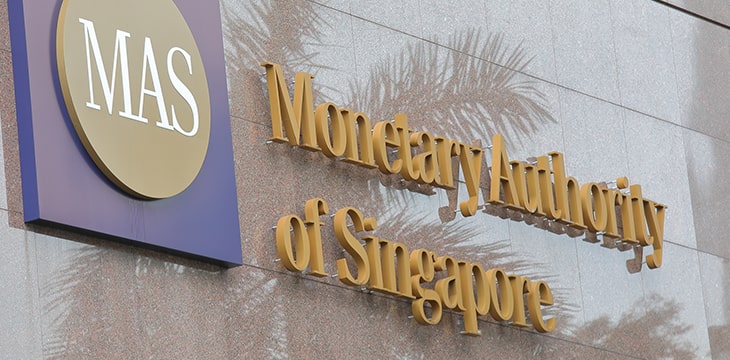|
Getting your Trinity Audio player ready...
|
Singapore’s financial regulator, the Monetary Authority of Singapore (MAS), has pledged S$42 million (US$31.6 million) towards modernizing the country’s financial digital infrastructure. Part of this will include the new Regulatory Technology (RegTech) grant scheme, which provides funding both to develop new entrants to the market, and assist more established firms to integrate modern RegTech systems on a larger scale.
While the grants scheme doesn’t refer to digital assets or blockchain companies specifically, some industry representatives have welcomed the announcement. Developing and integrating RegTech into the digital asset ecosystem is vital to their gaining acceptance in the wider financial world.
The new grant schemes also include a “Digital Acceleration Grant” with S$30 million funding aimed at smaller financial institutions in Singapore (no more than 200 employees) to help them develop tools to meet challenges created by the COVID-19 pandemic and its effects. These tools would include tangental systems like cloud and data analytics, and productivity applications.
An important point about the new grants scheme was its focus on pilot programs, which will give new developers extra funding to build systems that might not exist if they had to develop them for free and in their spare time.
In announcing the grants, MAS’s Chief Fintech Officer Sopnendu Mohanty said it was difficult for new RegTech solution providers to develop systems without funding, while more established financial institutions themselves had limited resources to devote to modernizing their regulatory compliance functions.
MAS said it had received 1,100 applications for the new grants at the end of March 2021.
Why developing RegTech is important for the digital asset industry
VP of Business Development at blockchain analysis firm Merkle Science, Ian Lee, said the move was “very encouraging for fintech innovation in Singapore and demonstrates the MAS’s goal of Singapore becoming the Smart Financial Centre of the world.” He called it “another stake in the ground” for the MAS in enabling blockchain companies to continue pushing the boundaries of innovation.
“Arguably, one of the biggest hurdles toward the legitimisation of digital assets is abusive and illicit behavior—both real and perceived—within the industry that governmental bodies around the world are struggling to navigate and manage. Having robust RegTech that keeps in pace with fast-changing technologies—such as blockchain and cryptocurrencies—is necessary to create a safe environment for innovation and ensure the healthy growth of the industry.”
Lee said that while the MAS’s new RegTech grant isn’t targeted at the digital asset sector per se, the grant would still have substantial impacts on the space. RegTech will be key to accelerating blockchain’s transition into the broader financial ecosystem. Additionally, under the current PSA licensing regime, digital asset exchanges and other service providers that receive a license will officially be labeled as financial institutions—thus qualifying them for this grant.
RegTech is a relatively new sector within the FinTech world, and as such has struggled to develop new solutions—and then later to convince larger financial players to commit resources towards developing and integrating its ideas.
Lee pointed out the difficulties these startups face:
“RegTech solutions are having a difficult time gaining market share here in Singapore and abroad. Oftentimes, startups at their initial stages have to give away their solutions at a low cost—or sometimes even for free—in order to gain traction and receive feedback on their product. With startups’ limited resources, it is difficult for these innovative new startups to compete with larger legacy firms.”
The MAS is supporting the development of local RegTech startups and encouraging innovation in two ways, he added.
“Firstly, the grant furthers the existing Digital Acceleration Grant (DAG) scheme, which is available to any startup that services financial institutions. Through the extension of the DAG, financial institutions can also use the grant to subsidize their cost of operation.”
“The second, perhaps more interesting feature of this new grant is for RegTech providers to pilot their solutions and test for efficacy under a paid model. While the details on this feature have not been released yet, it sounds like there may be subsidies for established companies to use and test the solution before the startup moves the solution to full-scale production.”

 02-19-2026
02-19-2026 




